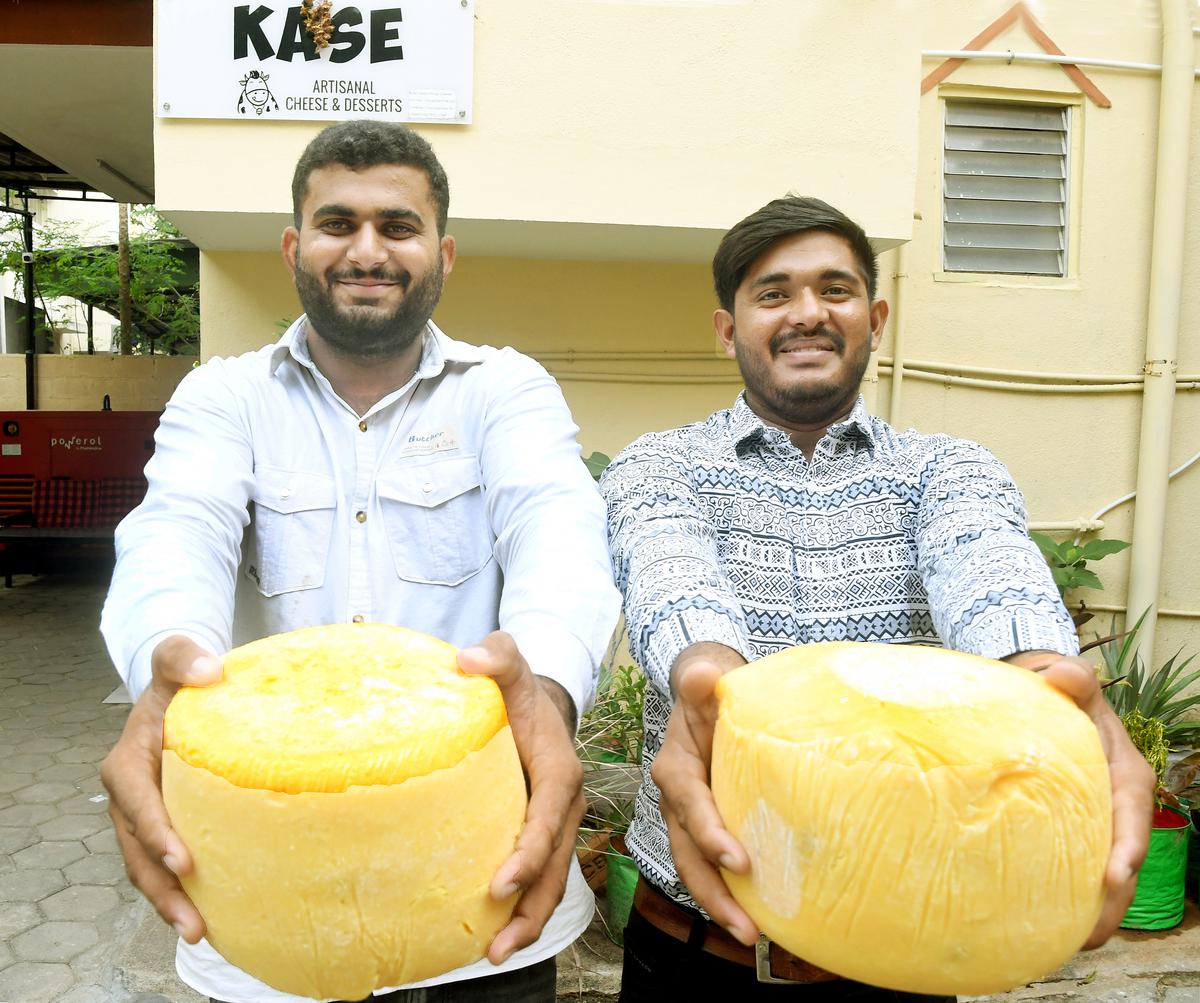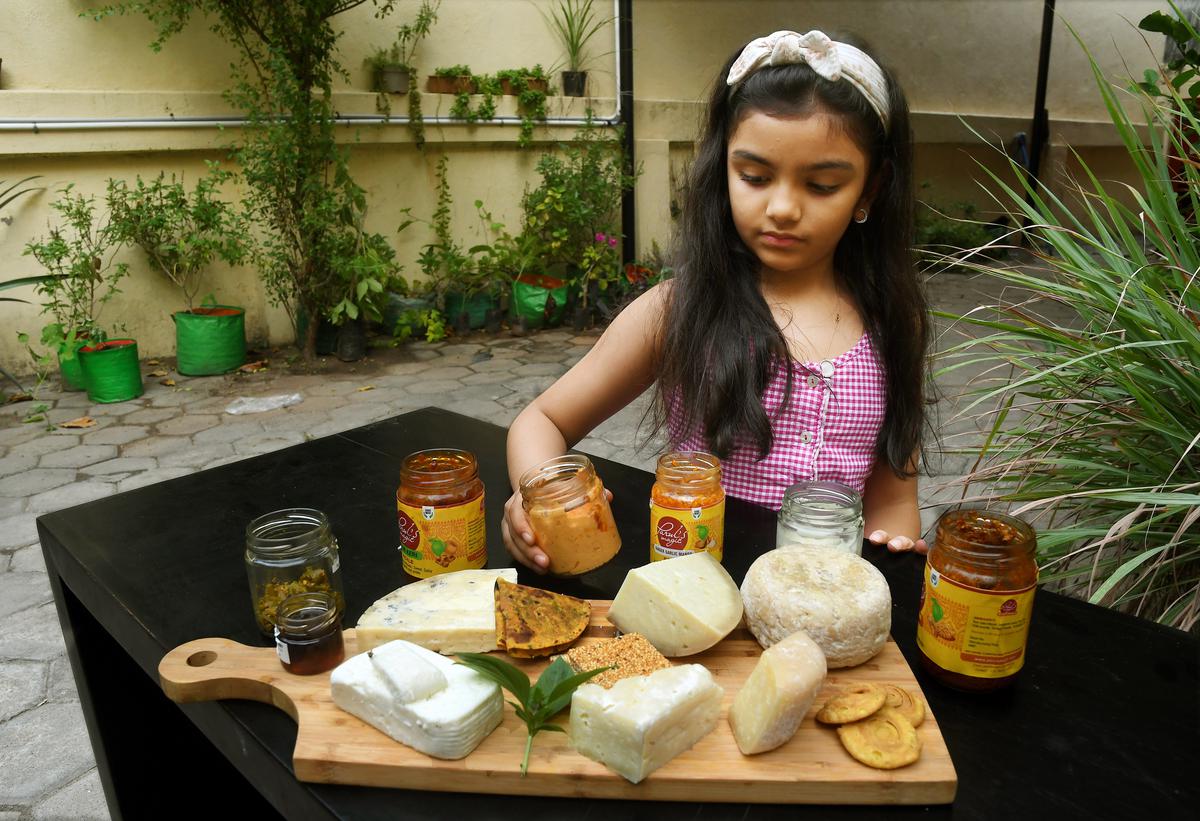Two pastoralists from Gujarat collaborate with Chennai’s Kase to make cheese using surplus goat and sheep milk from the region
Two pastoralists from Gujarat collaborate with Chennai’s Kase to make cheese using surplus goat and sheep milk from the region
Arpanbhai Kalotra, a pastoral Maldhari (herdsmen) from Gujarat’s Rabadi community drinks sheep and goat’s milk every day. “Though Gujarat produces large quantities of this milk, it is less in demand so there is a daily surplus,” he says, adding that the Maldharis consume it in multiple ways to minimise wastage. “We make tea, set curd and even make khoa with it,” he says, adding “ we mix the remaining with cow milk and sell to locals.”

Cheesemakers from surendranagar, Gujarat, Arphanbhai Kalotra and Bhimsibhai Ghanghal
| Photo Credit: R Ravindran
Arpanbhai and Bhimsibhai Ghanghal, who live in Surendranagar, Gujarat, have now found another way to make use of this surplus: artisanal cheese.
Namrata Sundaresan, co-founder of Chennai-based Käse who trained the Maldharis in cheese making last year explains that the feta they make is delicious “terroir-inspired cheese where the flavour is impacted by the livestock and region where milk is procured.”
“We at Käse are constantly on the look out for ethically-sourced clean milk and this led us to cross paths with the Centre for Pastoralism, India (CfP). Milk is central to the livelihoods of pastoral households in Gujarat. With indigenous milk surpluses, we are presented with a unique opportunity to enhance pastoral livelihoods via artisanal cheese making,” says Namrata, adding that the initiative began as an entrepreneurship training programme for the youth of the pastoral community, and Arphanbhai and Bhimsibhai were selected by the Centre for Pastoralism after a rigorous selection process.

At Kase, a Pastroral cheese tasting session was organised and it was paired with Gujrati snacks made by Parul Bhatt
| Photo Credit: R Ravindran
The duo now makes 10 types of cheese, including chèvre, feta, barrel aged feta, pecorino fresco, cheddar and tomme. They have set up a processing unit with a storage facility in their village at a cost of ₹6 lakh. “All these years so much precious milk was wasted. Today, we are empowered to make the best use of it. We have over 100 goats and also buy goat milk from other pastoralists in the region as we need 100 litres to make a kilogram of cheese,” says Bhimsibhai.
Käse recently organised a pastoral cheese tasting event, pairing them with Gujarati snacks and pickles from Parul’s Pickle Magic by Parul Bhatt. Feta, traditionally crumbled on salads, was paired with thepla: the subtle flavour of ajwain and cumin blended well with the cheese. Says Namrata, “Since this range is made in rural Gujarat, we thought the best way to introduce it was by pairing it with traditional Gujarati condiments.”
Namrata conducts workshops on Cheesemaking. To register, call 9176221898.
Stay connected with us on social media platform for instant update click here to join our Twitter, & Facebook
We are now on Telegram. Click here to join our channel (@TechiUpdate) and stay updated with the latest Technology headlines.
For all the latest Food and Drinks News Click Here
